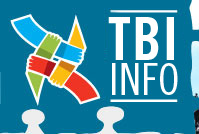You are here : Home > Library > Experiences, perspectives, and needs of patients and their close (...) > 2004 > Oppermann, J.D. (2004) Interpreting the meaning individuals ascribe to (...)
Oppermann, J.D. (2004) Interpreting the meaning individuals ascribe to returning to work after traumatic brain injury: A qualitative approach. Brain Injury, 18(9), 941-955.
Objective: The purpose of this study was to describe, qualitatively, the meaning individuals ascribe to returning to work after traumatic injury to the brain. Design: A qualitative multiple-case study design was used for this study to allow for flexibility during data collection and to support naturalistic generalizations. Methods: A random sample of two participants was included in the study using snowball sampling. Semi-structured interviews and written documentation was used to collect data. Cross-case analysis was used to identify phenomenological themes. Results: While defining the meaning of work, thematic analysis revealed three themes: (a) experience of finding work after injury, (b) experience of maintaining work and (c) independence related to work. Conclusion: The several important points that were identified throughout semi-structured interviews were how individuals subjectively and objectively define work, important points about personal experiences finding and maintaining work and the societal value individuals relate to work. Important themes found in this study could be addressed by intermittent long-term interventions following traumatic brain injury (TBI).
Terms of Use | 2007-2008 All rights reserved © INFO-TBI. Graphic design : François Ménard | Design : WebConforme

